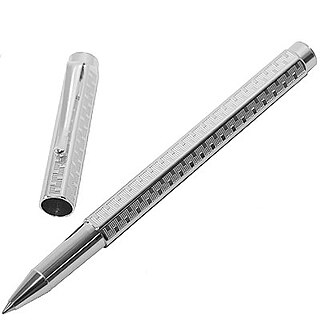ܩܢܝܐ
From Wiktionary, the free dictionary
From Wiktionary, the free dictionary

From Aramaic קַנְיָא (qanəya), from Akkadian 𒄀 (qanûm); compare Arabic قَنَاة (qanāh), Ancient Greek κάννα (kánna), Hebrew קָנֶה (kané). Doublet of ܩܲܢܝܼܬ݂ܵܐ (qanīṯā, “channel”), ܩܵܢܘܿܢܵܐ (qānōnā, “law, cannon”), and ܟܢܘܼܢܬܵܐ (knuntā, “wrist; plumb line”).
ܩܲܢܝܵܐ • (qanyā) m sg (plural ܩ̈ܢܲܝܵܐ (qnayyā) or ܩܲܢܝܹ̈ܐ (qanyē))
| Inflection of ܩܲܢܝܵܐ (qanyā) | ||||||||
|---|---|---|---|---|---|---|---|---|
| number | isolated forms | with possessive pronouns | ||||||
| state | form | person | singular | plural | ||||
| m | f | |||||||
| singular | absolute | – | 1st person | ܩܲܢܝܝܼ (qanyī) |
ܩܲܢܝܲܢ (qanyan) | |||
| construct | ܩܢܹܐ (qnē) |
2nd person | ܩܲܢܝܘܼܟ݂ (qanyūḵ) |
ܩܲܢܝܵܟ݂ܝ (qanyāḵ) |
ܩܲܢܝܵܘܟ݂ܘܿܢ (qanyāwḵōn) | |||
| emphatic | ܩܲܢܝܵܐ (qanyā) |
3rd person | ܩܲܢܝܹܗ (qanyēh) |
ܩܲܢܝܵܗ̇ (qanyāh) |
ܩܲܢܝܗܘܿܢ (qanihōn) | |||
| plural | absolute | – | 1st person | ܩܢܲܝܝܼ̈ (qnayī) |
ܩܢܲܝܲܢ̈ (qnayyan) | |||
| construct | ܩܢܲܝ̈ (qnay) |
2nd person | ܩܢܲܝܘܼ̈ܟ݂ (qnayūḵ) |
ܩܢܲܝܵܟ݂ܝ̈ (qnayyāḵ) |
ܩܢܲܝܵܘ̈ܟ݂ܘܿܢ (qnayyāwḵōn) | |||
| emphatic | ܩܢܲܝܹ̈ܐ (qnayyē) |
3rd person | ܩܢܲܝܘܼ̈ܗܝ (qnayūh) |
ܩܢܲܝ̈ܘܿܗ̇ (qnayyōh) |
ܩܢܲܝܗ̈ܘܿܢ (qnayhōn) | |||
ܩܢܝܐ • (qanyā) m (plural ܩܢܝܬܐ (qanyāṯā) or ܩܢܝܐ (qenayyā))
Irregular inflection with a stem ending in Yodh.
| state | singular | plural |
|---|---|---|
| absolute | ܩܢܐ | ܩܢܝܢ |
| construct | ܩܢܐ | ܩܢܝܬ ,ܩܢܝ |
| emphatic | ܩܢܝܐ | ܩܢܝܬܐ ,ܩܢܝܐ |
| possessive forms | ||
| 1st c. sg. (my) | ܩܢܝܝ | ܩܢܝܬܝ ,ܩܢܝ |
| 2nd m. sg. (your) | ܩܢܝܟ | ܩܢܝܬܟ ,ܩܢܝܟ |
| 2nd f. sg. (your) | ܩܢܝܟܝ | ܩܢܝܬܟܝ ,ܩܢܝܟܝ |
| 3rd m. sg. (his) | ܩܢܝܗ | ܩܢܝܬܗ ,ܩܢܘܗܝ |
| 3rd f. sg. (her) | ܩܢܝܗ | ܩܢܝܬܗ ,ܩܢܝܗ |
| 1st c. pl. (our) | ܩܢܝܢ | ܩܢܝܬܢ ,ܩܢܝܢ |
| 2nd m. pl. (your) | ܩܢܝܟܘܢ | ܩܢܝܬܟܘܢ ,ܩܢܝܟܘܢ |
| 2nd f. pl. (your) | ܩܢܝܟܝܢ | ܩܢܝܬܟܝܢ ,ܩܢܝܟܝܢ |
| 3rd m. pl. (their) | ܩܢܝܗܘܢ | ܩܢܝܬܗܘܢ ,ܩܢܝܗܘܢ |
| 3rd f. pl. (their) | ܩܢܝܗܝܢ | ܩܢܝܬܗܝܢ ,ܩܢܝܗܝܢ |
ܩܢܝܐ • (qanyā) m
From the root ܩ-ܢ-ܐ (q-n-ʾ) related to possessing.
ܩܢܝܐ • (qannāyā) m (plural ܩܢܝܐ (qannāyē))
| state | singular | plural |
|---|---|---|
| absolute | ܩܢܝ | ܩܢܝܝܢ |
| construct | ܩܢܝ | ܩܢܝܝ |
| emphatic | ܩܢܝܐ | ܩܢܝܐ |
| possessive forms | ||
| 1st c. sg. (my) | ܩܢܝܝ | ܩܢܝܝ |
| 2nd m. sg. (your) | ܩܢܝܟ | ܩܢܝܝܟ |
| 2nd f. sg. (your) | ܩܢܝܟܝ | ܩܢܝܝܟܝ |
| 3rd m. sg. (his) | ܩܢܝܗ | ܩܢܝܘܗܝ |
| 3rd f. sg. (her) | ܩܢܝܗ | ܩܢܝܝܗ |
| 1st c. pl. (our) | ܩܢܝܢ | ܩܢܝܝܢ |
| 2nd m. pl. (your) | ܩܢܝܟܘܢ | ܩܢܝܝܟܘܢ |
| 2nd f. pl. (your) | ܩܢܝܟܝܢ | ܩܢܝܝܟܝܢ |
| 3rd m. pl. (their) | ܩܢܝܗܘܢ | ܩܢܝܝܗܘܢ |
| 3rd f. pl. (their) | ܩܢܝܗܝܢ | ܩܢܝܝܗܝܢ |
From the root ܩ-ܢ-ܐ (q-n-ʾ) related to possessing.
ܩܢܝܐ • (qenyā) m (plural ܩܢܝܐ (qənayyā))
Irregular inflection with a stem ending in Yodh.
| state | singular | plural |
|---|---|---|
| absolute | ܩܢܐ | ܩܢܝܢ |
| construct | ܩܢܐ | ܩܢܝ |
| emphatic | ܩܢܝܐ | ܩܢܝܐ |
| possessive forms | ||
| 1st c. sg. (my) | ܩܢܝܝ | ܩܢܝ |
| 2nd m. sg. (your) | ܩܢܝܟ | ܩܢܝܟ |
| 2nd f. sg. (your) | ܩܢܝܟܝ | ܩܢܝܟܝ |
| 3rd m. sg. (his) | ܩܢܝܗ | ܩܢܘܗܝ |
| 3rd f. sg. (her) | ܩܢܝܗ | ܩܢܝܗ |
| 1st c. pl. (our) | ܩܢܝܢ | ܩܢܝܢ |
| 2nd m. pl. (your) | ܩܢܝܟܘܢ | ܩܢܝܟܘܢ |
| 2nd f. pl. (your) | ܩܢܝܟܝܢ | ܩܢܝܟܝܢ |
| 3rd m. pl. (their) | ܩܢܝܗܘܢ | ܩܢܝܗܘܢ |
| 3rd f. pl. (their) | ܩܢܝܗܝܢ | ܩܢܝܗܝܢ |
Seamless Wikipedia browsing. On steroids.
Every time you click a link to Wikipedia, Wiktionary or Wikiquote in your browser's search results, it will show the modern Wikiwand interface.
Wikiwand extension is a five stars, simple, with minimum permission required to keep your browsing private, safe and transparent.